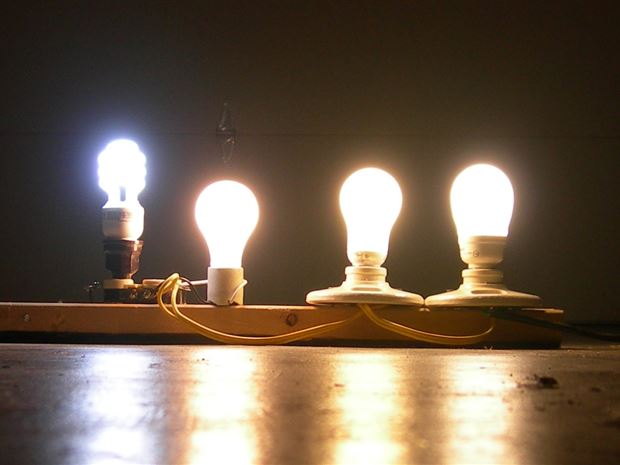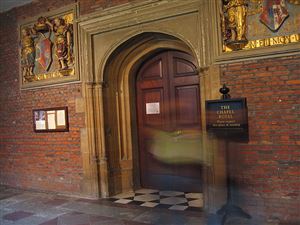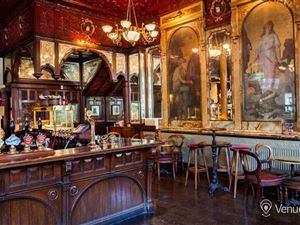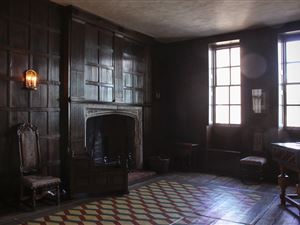Your home leaks cash! 5 tips to improve

If you live in the UK, your home is probably leaking cash. Simon Nash talks us through 5 things that can be done to stop this waste.
Guest article by Simon Nash of Green Oil UK
To quote Robert Kiyosaki, property success requires a long-term perspective. He may have been referring to a portfolio of hundreds of rental properties but this idea applies to your home when it comes to reducing energy waste. If you live in the UK, your home is probably leaking cash.
Like building a property empire, which light bulbs you buy and other improvements require a little long-term thinking, spending more initially to save money over a year or a decade. This article has 5 tips to improve your property, save money, help the environment and even make a profit.
Despite hysterical news headlines, energy in the UK is relatively cheap. Our energy is the third cheapest out of Europe's eleven Western nations. However, us Brits spend the second-highest proportion of household income on energy out of the same eleven countries (1). Basically, our homes are inefficient, often due to a short term perspective.
Even if you don't live in your property, you should invest in energy saving measures. Who would want to rent a house that costs a lot to heat, and feels cold? There is nothing like a lack of double glazing or incandescent to put off potential tenants. Even when selling a home these things matter aesthetically. Further, every home now sold has to have an energy performance certificate. A low rating means higher bills, and potential buyers can see this on the certificate.
Here are 5 ways to invest in your property to stop it leaking cash and carbon.
1. Insulate
This can be a good excuse to get rid of the junk in your loft! B&Q often have sales on insulation with energy company subsidies and green initiatives, so take advantage of them. The Government's Green Deal can also help with this. The more insulation the better, up to about 14 inches. The greenest option is lambs wool insulation from British sheep, as from www.blackmountaininsulation.com and is easy and safe to install (they fireproof it and it comes in convenient rolls).
Cavity wall insulation is another good thing to do – this fills the air gap between breeze blocks and the brick wall of a house. Both types of insulation are taken into account on your home's energy performance certificate, and of course last for the life of the property.
2. Trash the electric heater
Some small homes don't have gas heating installed. Electric heating is notoriously expensive and not very green. A portable gas heater is generally more effective to run and costs less than half the price of an electric heater. Gas heaters can be attractive too. The Calor Hotspot is very modern, safe, and costs around £150. They come in different colours – unlike the box shaped things you may remember from old Scout huts. They are clean, green but have an attractive blue flame and instant heat. Do check your insurance though - some policies prohibit the use of gas heaters.
Wood burning stoves: The ultimate long term investment. Wood burners are the ultimate green heater, which will also save you the most money. Homes in 'smoke free zones' – most of London, under the laws passed to stop smog many years ago require special filters, but can still be installed at between £4000 and £15,000. A DIY job with a second hand stove and flue (a thin metal chimney) can cost less than £200.
Wood burning stoves are closed, they are not open fires, but you can install one in an old fireplace and use a chimney stack for the flue. Once installed, you can use local wood from your neighbour's pruned trees, old pallet wood and basically heat your home for free. You can buy wood pellets, which per unit of heat are still cheaper than electricity or gas according to the Carbon Trust (2).
3. Windows 3.1 - Triple Glazing
Decent windows protect from sound as well as loosing very little heat. Most properties today have double glazing, and triple glazing and special glass windows are now coming in. One window by Saint Gobain only allows heat through in one direction – so heat from the sun can come through the window, but heat from inside won't escape through the glass the other way. One company at last year's Ecobuild Show (at London's Excel, 4th – 6th March) created a skylight window with quadruple glazing – that's four pieces of glass! The pay back time may be ten years or more, but they do also give a home an added touch of class.
If you still have single glazing, secondary glazing is a good choice. NigelsEcostore.com provide this, all you need is a tape measure to measure your window, and it costs £40 to £120 per window. You can even fit secondary glazing in front of existing double glazing, giving you triple glazing on the cheap, and even lower bills.
4. Buy decent lighting
Incredibly today, many Brits still buy incandescent bulbs because they are a couple of pounds cheaper on purchasing. Recently their import and manufacture have been banned in the EU, but a loophole allows 'halogen' bulbs nearly as inefficient to be sold. These simply cost you more money. You should buy either CFL, or LED bulbs instead.
The CFL (Compact Fluorescent Light bulb) usually known as an 'energy saving light bulb' uses just 11% of the energy of its old incandescent equivalent. They don't take time to warm up these days and they usually cost less than £4. That's an huge 89% saving on energy bills they give you. You can get stylish, attractive spiral versions, and even ones producing a daylight affect. One company called Plumen makes a particularly stylish bulb for those wanting to make an impact on visitors. Incandescent bulbs are so wasteful, its actually worth taking them out before they blow – every minute you use them, you're wasting money.
LED bulbs are coming onto the market in a big way. Light Emitting Diode bulbs (or to use the correct term, 'lamps') use between 2% and 5% of the power of incandescent bulbs, again giving the same amount of light. That's a up to a 98% saving on your energy bill for lighting. With energy bills rising, people should be buying LED lamps by the car load.
LEDs are great for replacing Halogen 'spot lights' – those circular things in the ceiling which you fitted in the 1990s. And which burn your hand when you touch them, and need replacing every few months. Halogen lamps are generally 50 Watts each, and with around 6 per ceiling, actually use more power to light a room than an an incandescent bulb.
An LED replacement can cost between £4 and £24 – the latter producing the same light, without the heat, and a lifespan ten times longer – that's on top of the energy saving benefit. Check if yours are GU10 (with two nail head pins underneath), or MR16 (two sharp spikes) and the voltage when purchasing. BLTDirect.com, and the TheLightbBulbShop.co.uk makes choosing the right lamp simple. Philips tend to make the best lamps currently, producing a warm light without the heat. Cheap lamps and bulbs can be found on ebay for a good price too.
5. Get solar
Solar panels do increase the value of your home, and the government pays you for the excess energy produced. Germany already gets half its power from renewable energy, and Britain is playing catch up. The pay back time was shorter before subsidies were reduced, but payback is still between 10 and 15 years. Of course, energy prices may sky rocket, which would reduce this time significantly. With solar panels you'll have two reasons to smile when the sun is out – the National Grid actually pays you for excess energy produced. Funky Renewables Evo Energy are two UK installers. Maplin sell DIY kits for less than £200 which are great for a shed with few appliances, though a little wiring experience is required.
You may wish to make your house greener simply because it's the right thing to do. You may wish to do everything you can on the basis that energy prices are going up from now on. Or, with interest rates at historic lows, it may be that your savings earn you more in energy savings than in interest. Clearly, the longer term perspective you have when making these investments, even with light bulbs, the more money you save. In any case, if you live in Britain, you should at least invest something to stop your property leaking cash, for selling, letting, or just living in.
Simon Nash is founder and director of Green Oil UK Limited and an independent environmental consultant. Twitter: @SimonFMNash
References:
(1) A More Intelligent Energy System, Lyonsdown report, February 2014, Distributed with the Sunday Telegraph. P. 12
(2) Gas Vs Electricity vs wood pellet heating cost source, The Carbon Trust 2014: http://www.energysavingtrust.org.uk/Energy-Saving-Trust/Our-calculations



